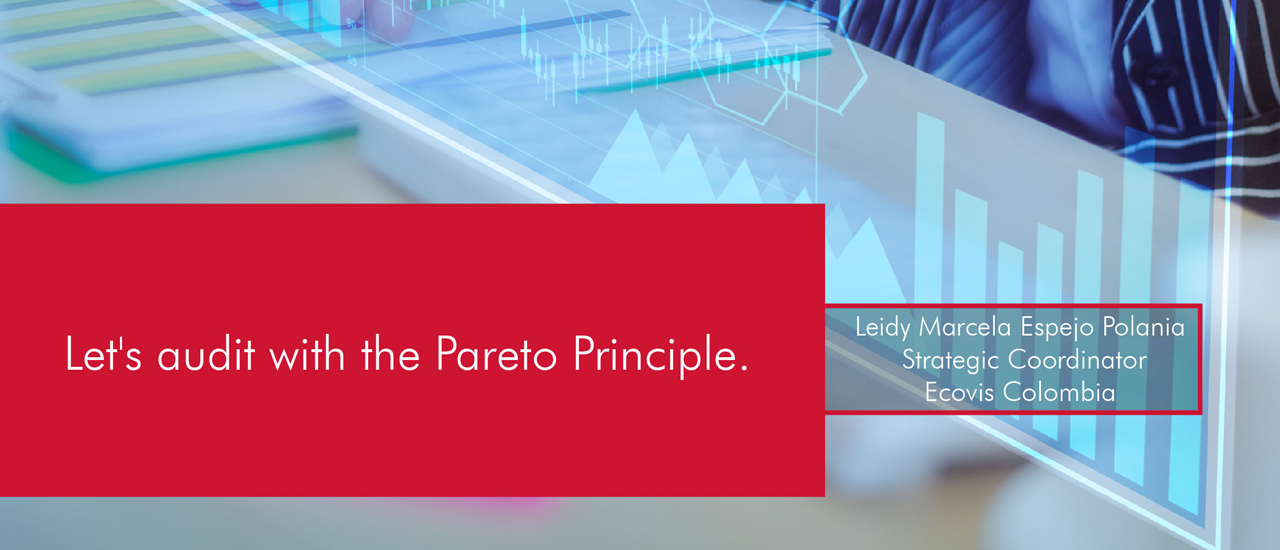Let’s audit with the Pareto Principle
Nowadays, time is conceived as a limited resource and as long as it is managed efficiently, it can become an investment rather than an expense, resulting in the generation of returns and tangible value.
The Pareto Principle of the economist and psychologist Vilfredo Pareto, describes the 80/20 relationship, stating that 80% of the consequences have their origin in 20% of the causes. If we apply this to the professional field of auditing, we could argue that 80% of the expected results can be achieved with 20% of the applied effort.
This prompted us to develop strategies at Ecovis aimed at implementing business analysis models that allow us to perform efficient audits in order to meet the objectives under a systematic, reasonable and comprehensive approach.
- Design: It has to do with the development and implementation phase of models and technological applications that allow us to automate processes to increase productivity.
- Identify: With the help of technological resources, in this phase we focus on establishing the most fruitful tasks for each audit assignment and prioritize their execution.
- Measure: Under the principle that “what is not measured is not managed”, we understand that there must be a direct relationship between volume and value, i.e., we establish the volume of tests based directly on the value they generate to meet the expected objectives within our scope as auditors.
- Professional attitude: In Ecovis we understand that the models alone could not have the expected success “even the best plane needs a pilot”, therefore we develop activities aimed at cultivating in our human resources a posture of skepticism, judgment and impeccable professional ethics.
- Innovate: How can we improve what we think is unbeatable, in Ecovis we are committed to use our knowledge to generate opportunities, in any audit process we must ask ourselves if what is always done the same, could be done in a different way, more efficient, better results, adding value to our customers.
We are in the era of automation, where technology is occupying an important space in our work, we must turn this latent threat into an advantageous opportunity.
Author: Leidy Marcela Espejo Polania
Strategic Coordinator
e-mail: leidy.espejo@ecovis.co

